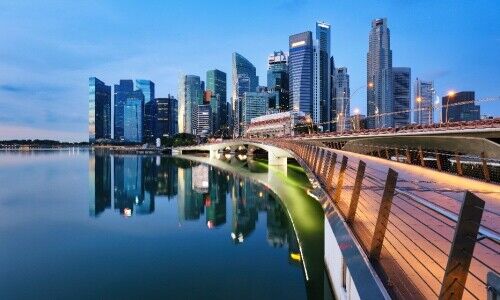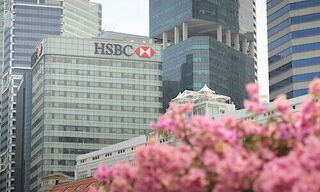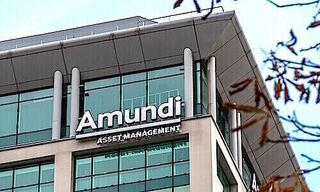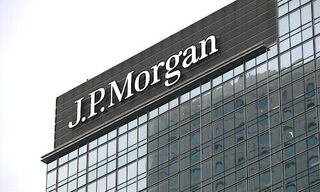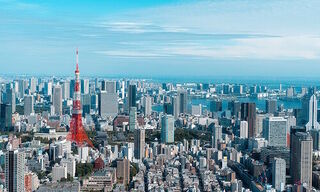In 1960, the city-state’s per capita GDP was one-third of Western Europe’s; now, it is nearly double.
This August, it will be exactly six decades since the founding of Singapore as an independent, sovereign state.
Economically, the former British colony cast away by the Malaysian Federation in 1965 has left everyone else in the dust, as a Daily Data Insight published on Monday shows.
Almost Double
Back then, the city’s per capita GDP was $3,460, a paltry one-third of Western Europe’s. Fast forward to now and lies at $80,300, practically lapping the $41,300 in personal economic output achieved by its erstwhile industrialized cohorts.
The figures are adjusted for inflation and the cost of living and are expressed in international US dollars at 2011 prices. In other words, they are not plucked out of thin air by Our World in Data, which published the graph.
Outsized Role
The collaborative effort between researchers at the University of Oxford and Global Change Data Lab, a non-profit organization, clearly shows that Singapore first overtook Western Europe in 1994 at the height of Lee Kwan Yew’s reign, the city’s founding father and first prime minister.
Although it is undeniable that Western Europe has shown steady if unspectacular growth in that time, a key factor as to why Singapore has managed to run rings around the old continent is due to its outsized role as a wealth management and family office hub, something finews.asia has analyzed at length.
Short Union
Still, it was not an easy ride at the outset, particularly after the newly created Malaysian federation, after an untold amount of political to and froing, de facto kicked the city-state out after a union that had lasted less than 23 months.
Despite that, in the somewhat chaotic, even violent, period of British decolonization during the post-war, Yew knew he might be on to a good thing – as did the other senior officials in the budding government huddled inside the Fullerton Building, now an eponymous hotel.
Making it Anywhere
But not many took his chutzpah seriously at the time, with Malayan Prime Minister Tunku Abdul Rahman paternalistically deriding Lee's vision of the future by saying Singapore’s government should indeed be focusing on becoming the «New York of South East Asia».
It just served to emphasize a period of deep uncertainty in the former port and colony, with the televised press conference of Lee breaking down in tears remaining etched in the minds of many Singaporeans alive then, although that ever-bulging buffer of income, prosperity, is probably one of the biggest IMF-stamped I-told-you-sos in recent history.
Role Model
The fact that the city-state has been such a role model the world over may even have something to do with the recent signing of the Johor-Singapore Special Economic Zone, something finews.asia recently reported on.
Take the Malaysian government's point of view as it faces a veritable onslaught of positive documentaries, media, and social media related to the city-state this year. It is going to feel like a loss of face and rubbing salt in a longstanding economic wound at the same time.
Bygones be Bygones
Given that, the Malaysians probably simply decided to let bygones be bygones and get into the act as well by signing the Johor-Singapore Special Economic Zone agreement on Tuesday.
The agreement can be interpreted as one part low-hanging fruit and one part a Malaysian hope that some of that magic economic dust rubs off on its economy. Even though it has been growing at a steady clip recently, it has more or less struggled to escape the middle-income trap for nearly half a century, as a recent OECD snapshot shows.
Understated Connector
But the truth is that Singapore should probably be aiming higher than Malaysia, and even Southeast Asia.
In a divided world facing up to Trump 2.0, tariffs, war, and possible financial market volatility, there is a need for a quiet, understated super connector between East and West. Someone that just gets the job done.
Cultural Distance
Hong Kong might have once been a prime candidate - but it no longer fits the bill given its increasing proximity to the mainland, not to mention that it now sits in a very hot – and visible - seat geopolitically.
Nor do Seoul, Tokyo, Sydney, or New Delhi as each pick is either way too logistically distant - or linguistically and culturally simply too much of a step to make right now.
Ideally Placed
That makes the city-state the most palatable choice as an international financial center for an entire region in an increasingly troubled world and one that is ideally placed to deal with the reflexive, petulant whims of Trump 2.0 and whatever else comes with it.

